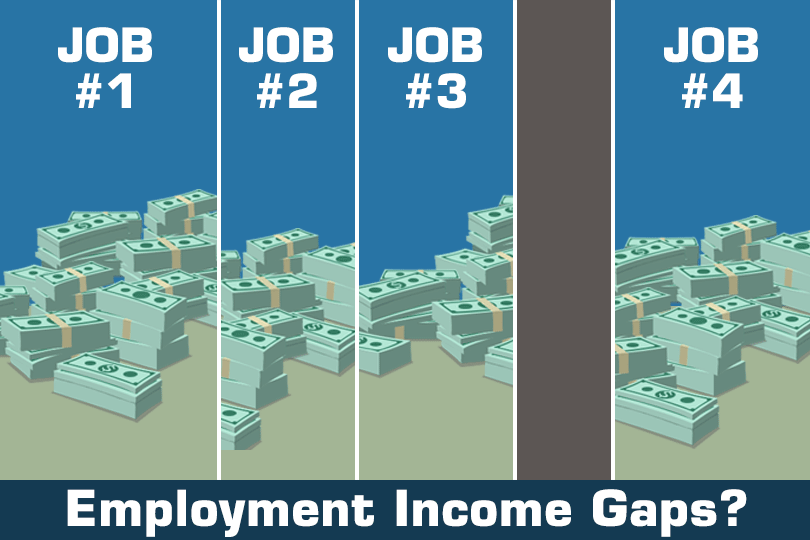Gaps in Employment and Temporary Reductions of Income

HUD 4000.1 consolidates several previous sources that instruct your lender on how to process FHA loan applications and how the mortgage lender should treat specific circumstances that can affect a borrower’s chances for FHA loan approval.
Those updated rules include guidelines for how the FHA views application issues such as frequent gaps in an FHA loan applicant’s employment and/or temporary reductions of income. Do these situations mean a borrower can’t qualify for an FHA mortgage? Not necessarily, but there are certain standards, starting with the employment gap issue:
“For Borrowers with gaps in employment of six months or more (an extended absence), the Mortgagee may consider the Borrower’s current income as Effective Income if it can verify and document that:
- the Borrower has been employed in the current job for at least six months at the time of case number assignment; and
- a two year work history prior to the absence from employment using standard or alternative employment verification.”
“If the Borrower has changed jobs more than three times in the previous 12-month period, or has changed lines of work, the Mortgagee must take additional steps to verify and document the stability of the borrower’s employment income. The mortgagee must obtain:
- transcripts of training and education demonstrating qualification for a new position; or
- employment documentation evidencing continual increases in income and/or benefits.”
“For Borrowers with a temporary reduction of income due to a short-term disability or similar temporary leave, the Mortgagee may consider the Borrower’s current income as Effective Income, if it can verify and document that:
- the Borrower intends to return to work;
- the Borrower has the right to return to work; and
- the Borrower qualifies for the Mortgage taking into account any reduction of income due to the circumstance.
Speak to your loan officer for clarification on these rules or how that lender’s standards may apply in such cases.
------------------------------
RELATED VIDEOS:
There's a Difference Between APR and Interest Rates
Choose Your Mortgage Lender Carefully
Getting Started With Your FHA Loan Application

Do you know what's on your credit report?
Learn what your score means.






